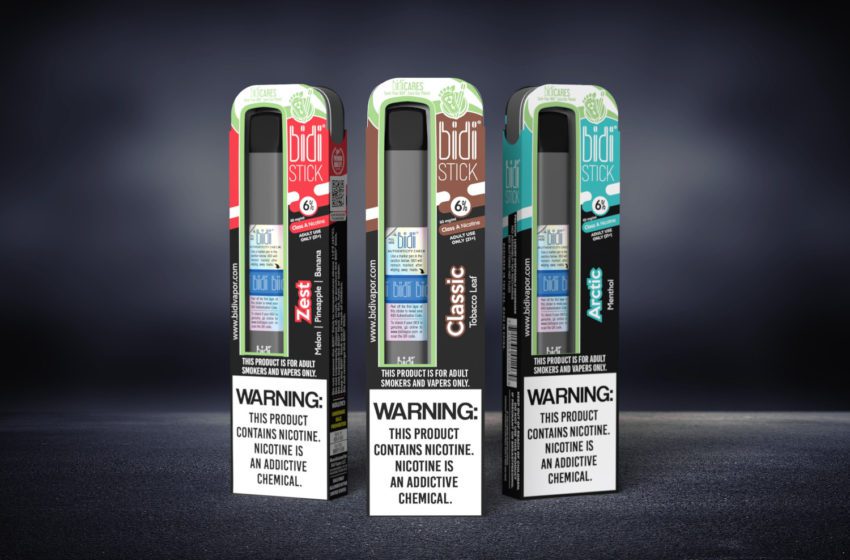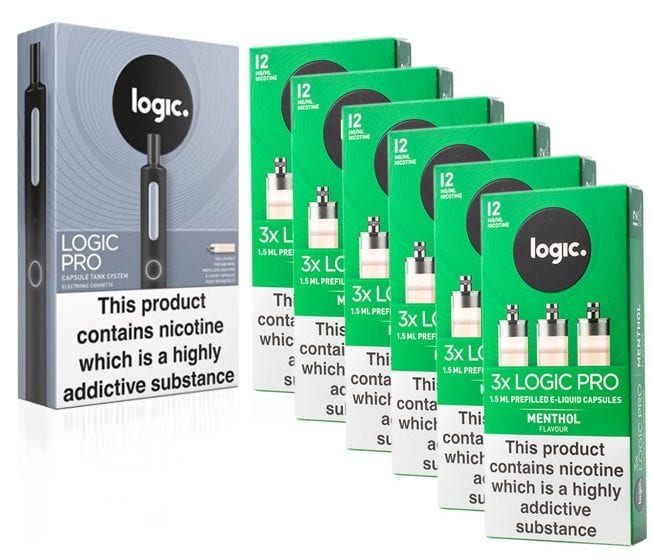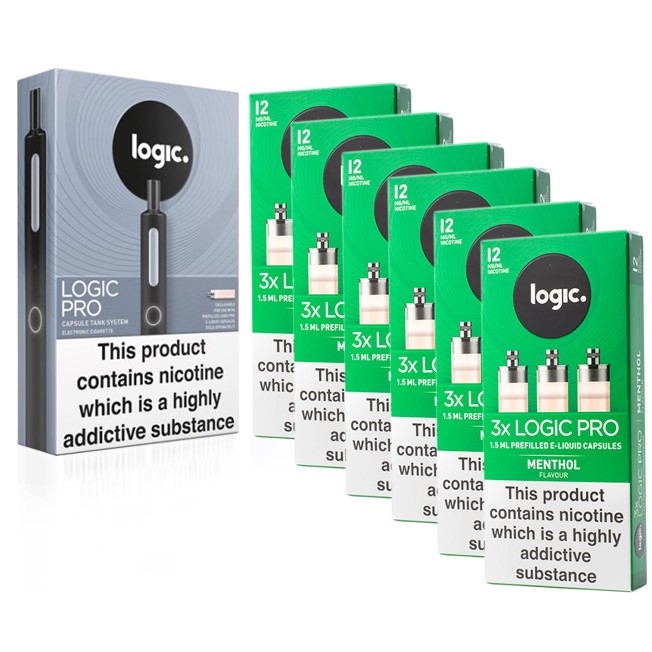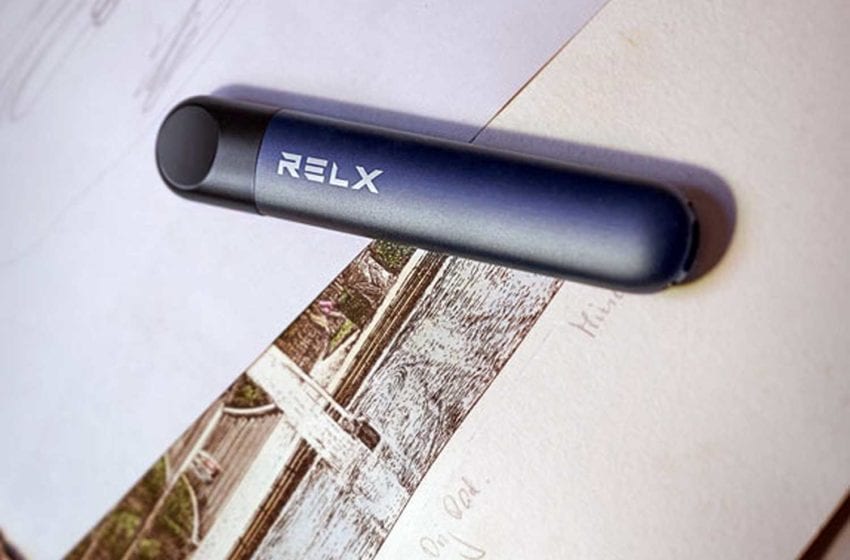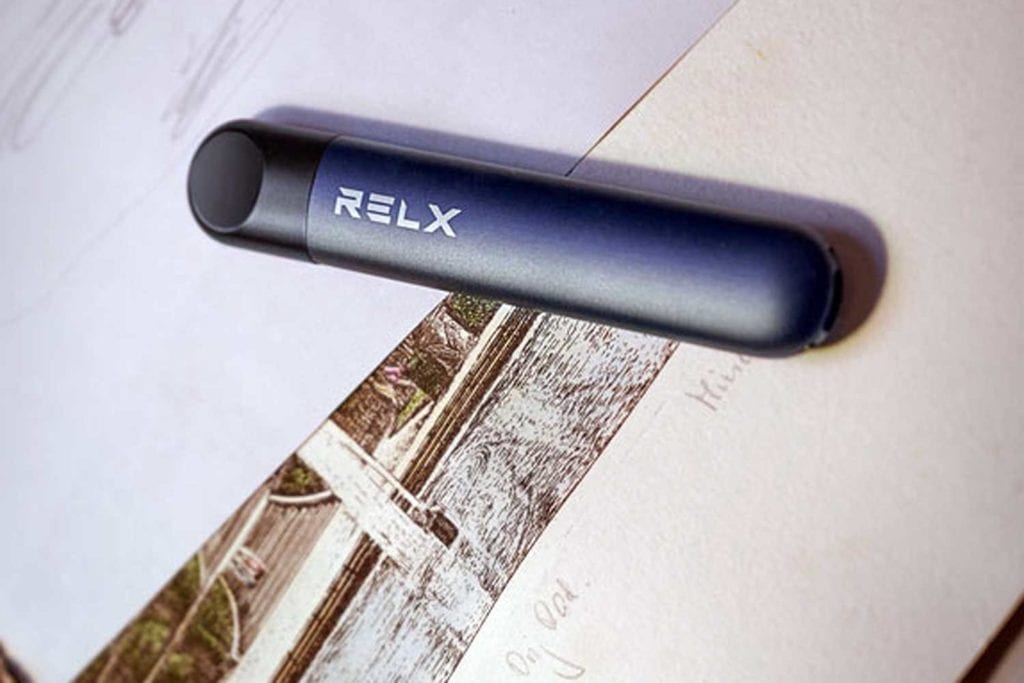
After the win of its merits case against the FDA, Kaival Brands and Bidi Vapor are back on track.
By Stefanie Rossel
The year 2022 has been both challenging and exciting for Kaival Brands Innovations Group. The Melbourne, Florida, USA-based company is the exclusive distributor of products manufactured by Bidi Vapor, which is best known for its Bidi Stick vape pen, a disposable electronic nicotine-delivery system (ENDS).
In September 2021, Bidi Vapor received a marketing denial order (MDO) from the U.S. Food and Drug Administration for its nontobacco-flavored Bidi Sticks. The company had submitted premarket tobacco product applications (PMTAs) for the product’s nine flavor varieties plus a tobacco and a menthol variant.
In response to Bidi Vapor’s petition for review, the FDA stayed the MDO until December 2021, after which the order was again stayed by the 11th Circuit Court of Appeals. On Aug. 23, 2022, Bidi Vapor won its merits case against the FDA. Granting Bidi Vapor’s petition for review, the 11th Circuit ruled that the MDO was “arbitrary and capricious,” primarily because the FDA failed to consider the relevant marketing and sales access restriction plans included in Bidi Vapor’s PMTAs.

At the time of writing, the FDA had yet to announce how it would move forward following the 11th Circuit’s decision. “FDA could seek to appeal the decision by requesting ‘en banc’ review, or a review by the entire 11th Circuit,” explains Eric Mosser, president and chief operating officer of Kaival Brands Innovations Group. “Or they might even try to petition the Supreme Court to review the decision. Regardless, we anticipate being able to continue selling and marketing our flavored products for the duration of any potential appeal, subject to FDA enforcement discretion. It is also possible FDA will simply follow the court’s instructions and review Bidi’s nontobacco PMTAs instead of trying to appeal.”
Flavors, insists Mosser, are a critical matter of public health, and Kaival is adamantly opposed to illegal underage use of tobacco and vape products. “The company has focused on limiting access via contracts with partners prioritizing retailers’ age verification policies, secret shopper audits, repackaging devices to better align with FDA guidance, no use of social media or influencers and no consumer-facing advertising,” he says. “The company even discontinued its online direct sales to consumers—while we had state-of-the-art verification practices, company leaders realized online access was a way that underage youth in general were gaining access to vaping products and decided to eliminate that potential for the Bidi Sticks.”
According to the most recent National Youth Tobacco Survey, Bidi Vapor was not among the top brands that appeal to youth. In 2021, among students who currently used e-cigarettes, Puff Bar was the most commonly reported usual brand (26.8 percent) followed by Vuse (10.5 percent), Smok (8.6 percent), Juul (6.8 percent) and Suorin (2.1 percent).

Victory for Vaping
The 11th Circuit’s decision is a victory not just for Bidi Vapor and Kaival Brands but for the entire vaping and tobacco harm reduction industry, according to Mosser—especially for those companies who have been rigorously following the FDA guidelines in their attempts to obtain market authorization. “We at Kaival Brands have done so on the belief that the FDA will follow the science and allow solid evidence to guide their decisions. If that is the case, then the company is on solid ground, and we are hopeful FDA will ultimately agree that our products, including our nontobacco flavored products, are appropriate for the protection of the public health.”
The PMTA for the company’s tobacco-flavored Classic Bidi Stick is currently undergoing Phase III scientific review. There is no timeline for this process, says Niraj Patel, chief science and regulatory officer for Kaival Brands Innovations Group and president and CEO of Bidi Vapor. The Arctic Bidi Stick, which Bidi Vapor maintains is a menthol product, was characterized as a flavored product by the FDA and subjected to the MDO that was vacated. “Barring an appeal, we anticipate that FDA will soon begin the scientific review of the Arctic Bidi Stick PMTA along with our other nontobacco-flavored products,” says Patel.
Patel founded both companies. With a wholesale distribution network of more than 54,000 stores across the United States, Kaival Brands helped Bidi Sticks, which entered the market prior to 2016 under a different brand name and with limited success, to become the fastest-growing and now No. 1 disposable vape brand in the U.S. market. Despite the MDO, the Bidi Stick is still the bestselling disposable ENDS product based on retail sales for the 52-week period ending on Aug. 27, 2022, Nielsen data shows, according to the companies.
Kaival Brands, which commenced business operations in March 2020, generated a cumulative $100 million in revenues in less than a year. In July 2021, Kaival Brands’ stock began trading on the Nasdaq. In April 2022, the company announced the expansion of additional wholesale and retail accounts, a move expected to increase the reach of Bidi Sticks by about 28,000 stores and to make up for the losses the company experienced in the wake of the MDO.
Difficult Times
In fiscal year 2021, which Patel described as “very challenging,” Kaival Brands reported a net loss of $9 million compared to net income of approximately $3.8 million for fiscal year 2020. In a press release, Patel said the MDO had caused “irreparable harm to both Bidi Vapor and Kaival Brands.”
The greatest revenue loss occurred in the last two quarters of fiscal year 2021, between the lifting of the FDA’s administrative stay and the ordering of the judicial stay, when the company was unable to market its Bidi Sticks. Revenues for fiscal year 2021 were approximately $58.8 million compared to $64.3 million in the prior fiscal year. Kaival Brands’ revenues decreased by approximately $15.7 million in the second quarter of fiscal year 2022 compared to the same period of fiscal year 2021, but revenues rose 11 percent compared with the first quarter of 2022, suggesting further recovery.
The 2021 year also presented challenges to Kaival Brands’ attempted foray into the modern oral nicotine market, a category that is still a niche but that has recently grown dramatically. The global nicotine pouches market size was valued at $1.5 billion in 2021. Grand View Research expects it to increase at a compound annual growth rate (CAGR) of 35.7 percent from 2022 to 2030.
Bidi Vapor had planned to introduce its Bidi Pouch in February 2021, but due to the Covid-19 pandemic, the launch had to be postponed. In September 2021, the company said in a press release that the launch would be further delayed while the company reformulated the product to utilize tobacco-derived nicotine and sought FDA marketing authorization. The company had originally envisioned the pouch to contain synthetic nicotine but pivoted following concerns about the legality of nontobacco-derived nicotine.
Congress subsequently changed the definition of a “tobacco product” to include synthetic nicotine products, with the FDA requiring manufacturers of nontobacco nicotine products to submit PMTAs by May 14, 2022. As of July 13, 2022, any new synthetic nicotine product that has not received premarket authorization from the FDA cannot be legally marketed. “We did not launch our nicotine pouch product,” Patel says. “Due to concerns with synthetic nicotine, we decided to focus on tobacco-derived nicotine and will launch in the U.S. only after we obtain FDA PMTA marketing authorization.”
Cooperating with PMI
In June 2022, Patel handed over the management of Kaival Brands to Eric Mosser. The leadership change had always been a part of the plan, according to Mosser. “I was preparing for the leadership role, which was set to occur as soon as plans for international expansion solidified. International distribution came sooner than later once Philip Morris International decided to license technology from Bidi Vapor and now also has distribution rights in certain markets outside the United States.”
Two weeks earlier, Kaival Brands’ newly created wholly owned subsidiary, Kaival Brands International, had entered into a licensing agreement with Philip Morris Products (PMP), a wholly owned affiliate of PMI. The agreement grants to PMP a license of certain intellectual property rights relating to Bidi Vapor’s premium ENDS device, the Bidi Stick, as well as potentially newly developed devices to permit PMP to manufacture, promote, sell and distribute such ENDS devices and newly developed devices in international markets outside of the U.S. Patel called the agreement a major milestone in Kaival Brands’ efforts to expand the global sales and distribution of the Bidi Stick.
Kaival Brands, in turn, announced the launch of Veeba, PMI’s first disposable e-cigarette utilizing Bidi Vapor’s intellectual property, in Canada in late July. PMI’s new product is now the lowest-priced disposable vape on the Canadian market. Mosser says he anticipates revenues through royalties paid by PMP, pursuant to the licensing agreement, in the fourth fiscal quarter. “I see Kaival Brands reclaiming its previous revenue growth trajectory and expanding into additional market segments with new innovative products that we exclusively distribute or own, not only here in the U.S. but also in profitable global markets.”
Disposable e-cigarettes are a growth market. According to report from Future Market Insights, the global disposable e-cigarette market size is expected to be valued at $6.34 billion in 2022. The overall demand for disposable e-cigarettes is projected to grow at a CAGR of 11.2 percent between 2022 and 2032, totaling around $ 18.32 billion by 2032.


